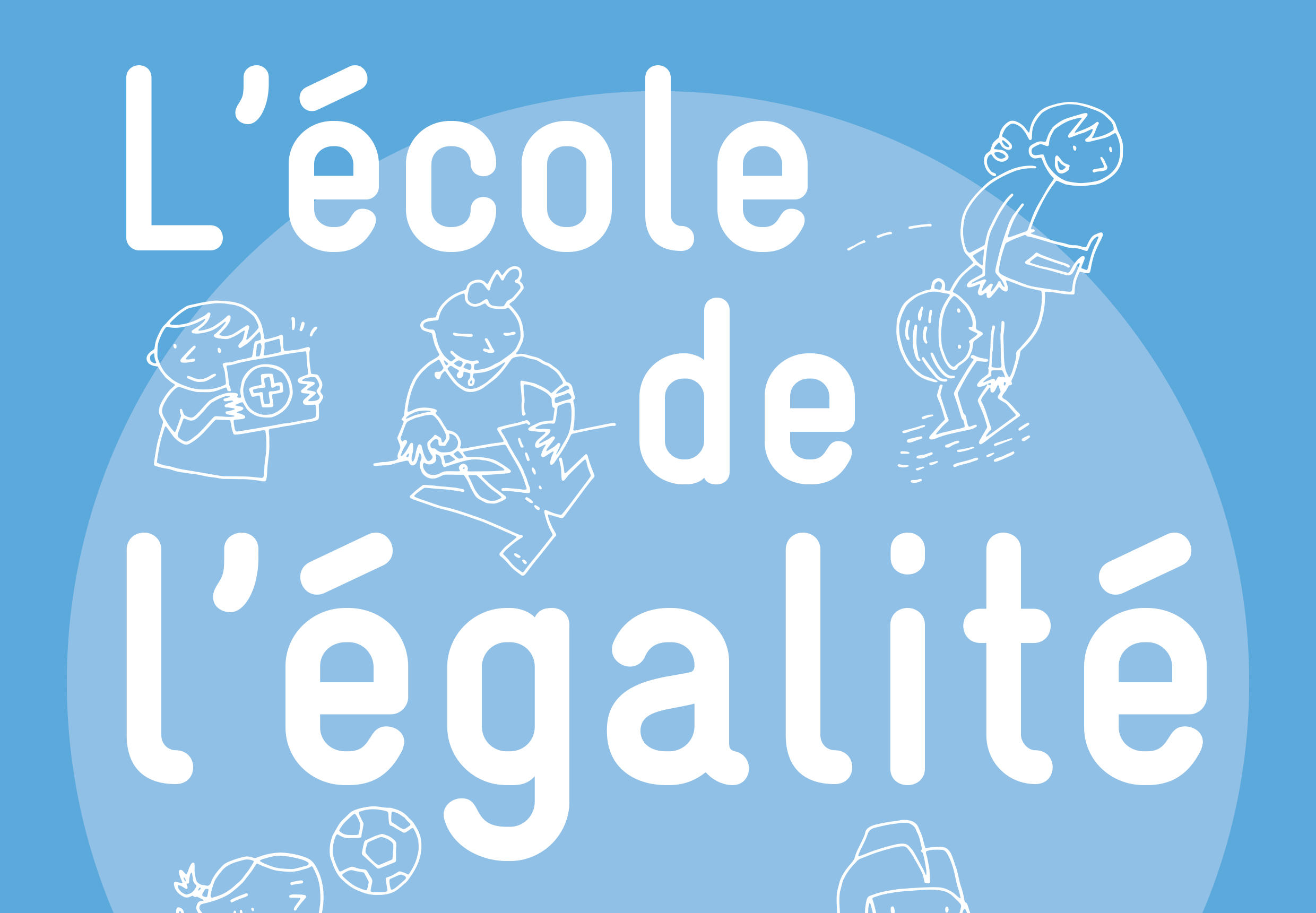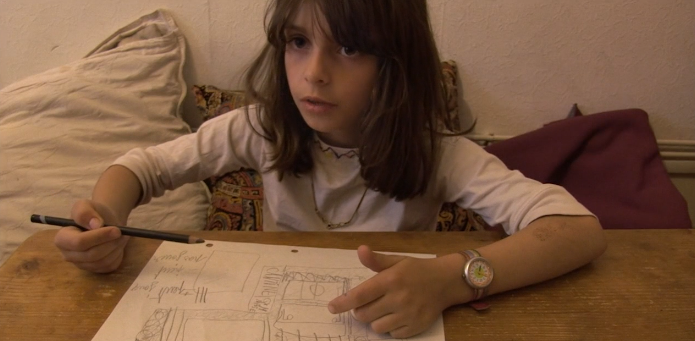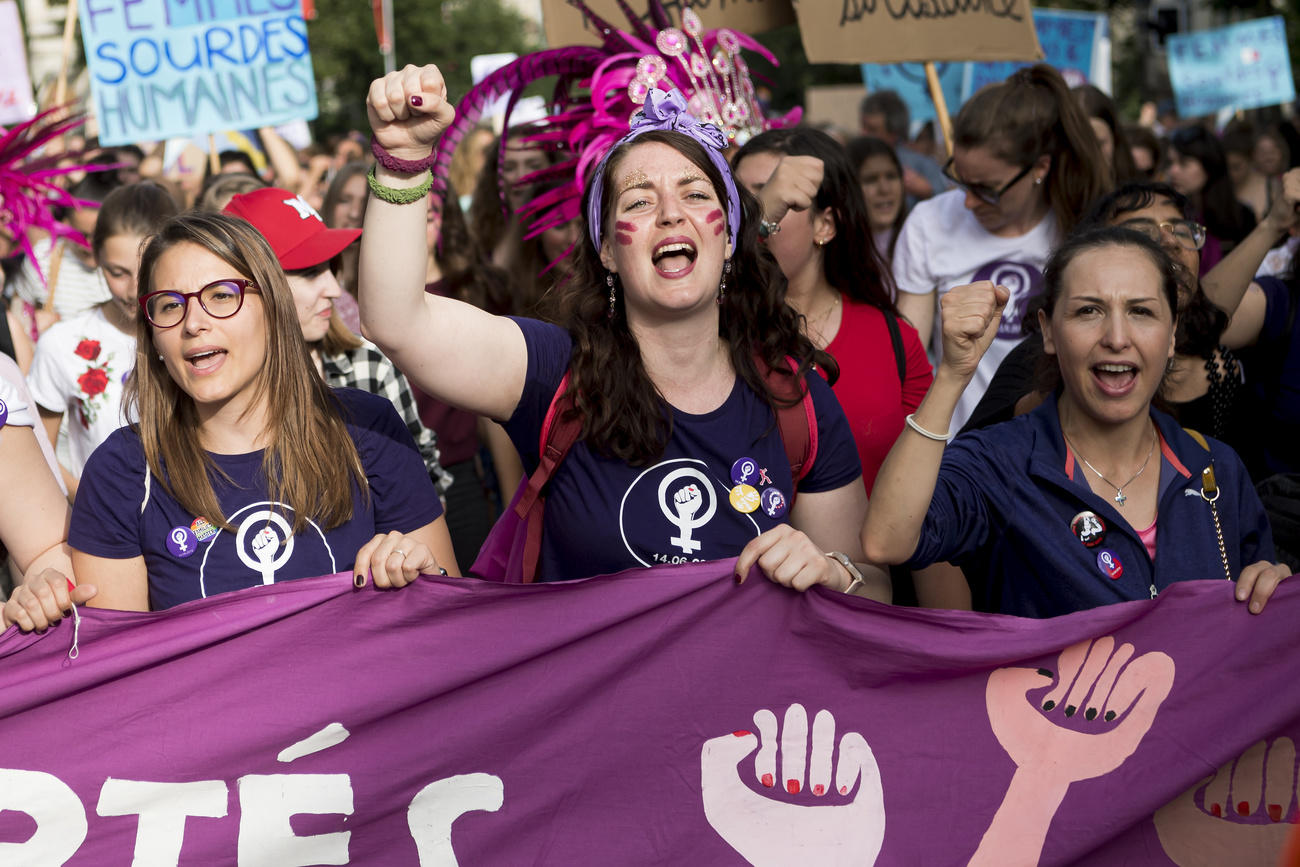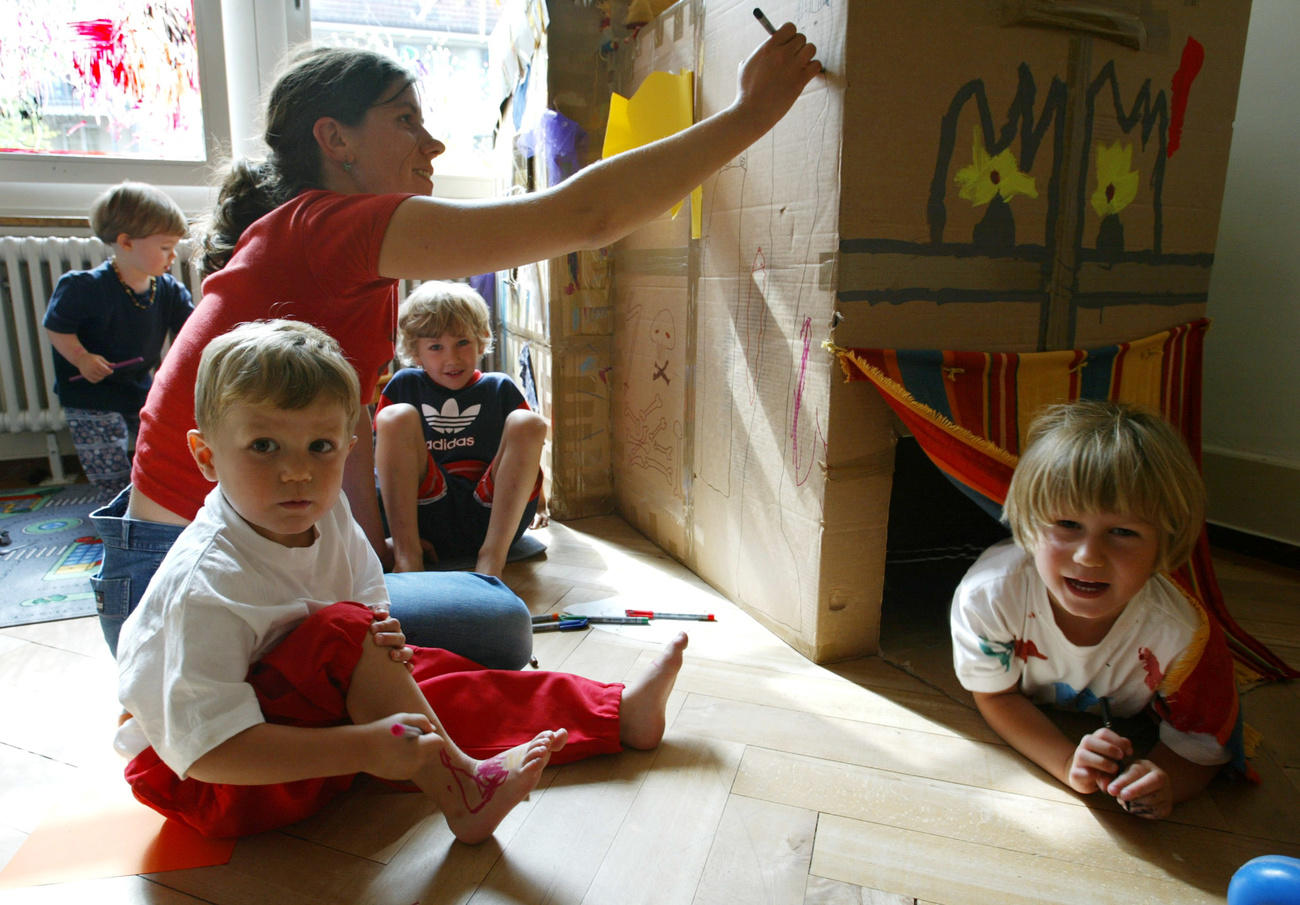The princess does woodwork, superman looks after the baby

In Switzerland, gender inequality still has a big impact on girls and boys. To mark the International Day of the GirlExternal link, we look at how an innovative project, the School of Equality, helps pupils tackle prejudices and sexist stereotypes.
“When I was at school, only girls took home economics courses; they learned how to mend stockings or how to cook,” remembers a 60-year-old Swiss woman. A 15-year-old female pupil living in the same neighbourhood struggles to imagine such segregation: “At our school, girls and boys cook and learn to change lightbulbs together”.
But sexual equality in education is still far from being achieved in Switzerland. The path taken still largely depends on whether you are a girl or a boy. For example, at the end of obligatory schooling, women tend to choose jobs which are less well paid and offer fewer chances of promotion.
The School of Equality
Set up by the Equality Office of the French-speaking Swiss cantonsExternal link, the School of Equality project is managed by the Office for Equality Between Women and Men in canton Vaud.
The material in the four brochures covers the whole of obligatory education (ages 4 to 15/16). The first brochure, which is aimed at students in grades one to four (aged 4 to 8) has been available since February 2019. The other three brochures will be released in early 2020.
In fact, the traditional family model where the man works and the woman looks after the children, is still prevalent. Statistics from the Federal Statistical Office show that among working people with children under 25 years old in 2018, the proportion of women working part time was 78.8% compared to just 11.7% of men.
Implicit stereotypes
As in all the other areas of children’s socialisation, school is also a vehicle for messages about differences between the sexes. A survey carried out in primary schools in French-speaking cantons by the 2nd ObservatoryExternal link, a Swiss research and training institute on gender relations, found that school teachers tended to:
- Call on boys to speak more often
- Be more tolerant towards noise made by boys
- Call the girls by name less often than the boys during class
- Discipline girls less than the boys
In its prevention guideExternal link published last year, the institute noted that “early learning professionals, like teachers, have different expectations, and attribute certain characteristics to girls and others to boys”.
At school, sexist stereotypes are often implicit in the language used.
“For example, when we speak about anything related to family such as lunch or aprons to bring to school, etc., we often make reference to ‘your mother’ instead of ‘your parents’,” notes Seema Ney, head of the School of Equality projectExternal link at the Office for Equality between Women and Men in canton Vaud.

More
At the School of Equality
At the School of Equality
“School certainly reproduces certain inequalities, but it is above all a place where you can question inequality,” continues Ney. One of the objectives of the School of Equality, a new educational tool launched at the beginning of 2019, is to make students aware of gender stereotypes and to enable them to identify and overcome them.
“With this easy-to-use educational material, we hope to encourage teachers to introduce thinking about gender equality into lessons from time to time, and this can be during French, maths, geography or history,” says Ney.
One of the brochuresExternal link, for example, uses an email to prompt discussion.
“Hi Grandpa, at school we are in the process of preparing our costumes for the end of year parade. The theme is sport. In my class, the girls are going to be dressed as dancers and the boys as footballers. You know that I love football… But I don’t dare say that I want to dress up as a footballer… Love, Zora”.
By reading the text and imagining themselves as the grandfather, who is writing a reply to Zora, children both learn to write an email and to consider: why is Zora frustrated? What could I tell her to do? What would I do in her place?
The aim is to launch a discussion about stereotypes to enable both girls and boys to make their own choices. It’s not about encouraging girls to dress up as footballers, but to make them understand that they could dress up as either a footballer or a dancer. It is up to them. They should not be forced into a choice because it conforms to traditional ideals.
School playground challenge
Girl footballers are not only pushed to the side for the parade but also during school breaktimes.
“It annoys me because the boys at school never let us play football… it’s not great… The problem is that they have a lot of space in the playground, sometimes they even need more than the football field….so we have even less space…,” says a 9-year-old girl in the short film “Espace” (Space).

More
It’s not fair that just because we’re girls, we’re not allowed…
The playground is often considered a free space and teachers don’t usually discuss with pupils what they can and cannot do during breaktime, underlines Ney. “Being able to intervene would certainly lead to a better sharing of the space which would suit everyone better,” she says.
Gender inequality affects both girls and boys
Seema Nay, project lead
It sometimes works the other way around: the girls don’t let the boys play elastics with them. Boys are also stuck in the gender norms which are imposed on them, such as needing to prove their manliness.
Gender norms
“It’s a very heavy burden for some of them. And it can lead to serious consequences like harassment if we don’t pay it enough attention,” comments Ney.
Boys – more so than girls – also suffer social pressure if they are interested in “atypical” professions, according to a research reportExternal link published in 2014.
If a girl wants to become a racing driver or a fire officer, her immediate circle, even if surprised initially, will eventually appreciate the special nature and the courage of her choice. But boys who wish to become primary school teachers, nurses or florists may by accused of being unmanly or even of being a professional failure.
In Switzerland, most young people are expected to choose their profession before the age of 15.
+ Read more about pupils making a career choice here
For those anxious for acceptance by their peers and sensitive about belonging to a gender group, it is not easy to go against society’s norms. So it is particularly important to ensure that young people can identify and resist gender stereotypes from childhood, experts say.
At the School of Equality, the princess therefore does woodwork and superman looks after the baby. In natural science courses, the students learn that “with penguins, it is the man that looks after the egg and the woman who travels far in search of food”.
In maths lessons, the students help Rosie, a girl passionate about inventing machines, to count her tools, and help Oscar the florist to calculate the number of bouquets sold. When it’s time for the music lesson, the students sing: “Fleur will be an engineer, Amal wants to play football, Arthur is sewing and Florent will look after his children”.
“Gender inequality affects both girls and boys,” says Ney. “Our brochures are aimed at promoting equality between girls and boys during education, thus helping to achieve greater equality between the sexes.”

In compliance with the JTI standards
More: SWI swissinfo.ch certified by the Journalism Trust Initiative















You can find an overview of ongoing debates with our journalists here . Please join us!
If you want to start a conversation about a topic raised in this article or want to report factual errors, email us at english@swissinfo.ch.